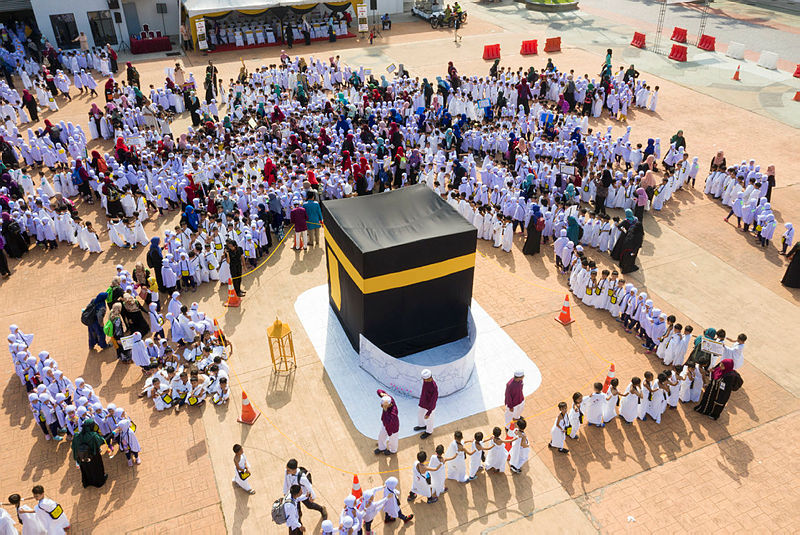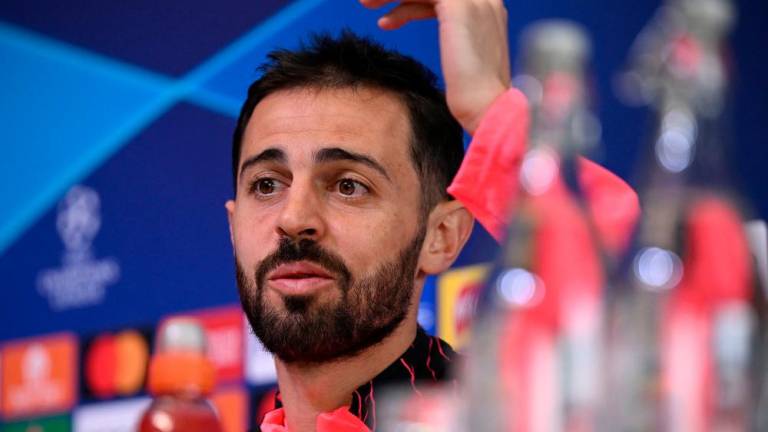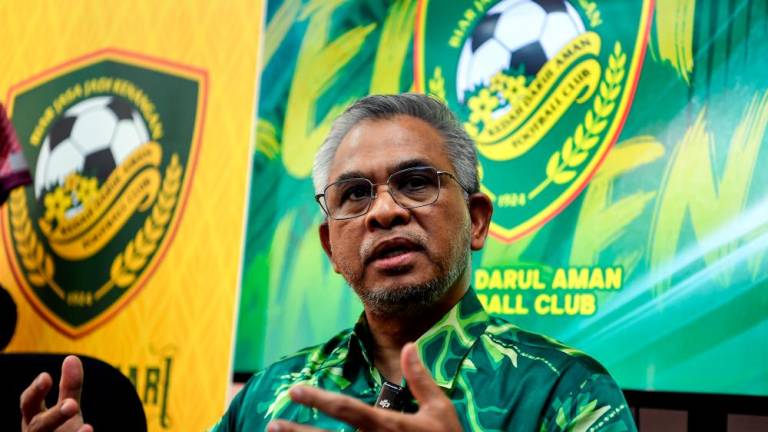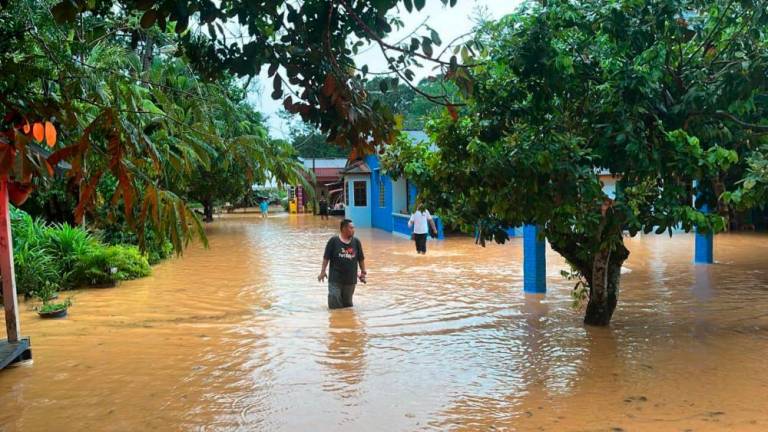KUALA LUMPUR: Thousands of Malaysian children took part in a practice run, on Thursday, of the Muslim hajj pilgrimage, marching around a model of the holy Kaaba, Islam’s most sacred site.
Dressed in white robes, the youngsters circled the black cuboid in the compound of a convention centre just outside Kuala Lumpur.
The Kaaba sits inside the Grand Mosque in Mecca, Saudi Arabia, and Muslims around the world turn towards it to pray. Part of the hajj involves walking around the Kaaba.
“We are learning how to do the hajj,“ six-year-old Aqra Izz told AFP, as nearly 6,000 boys and girls took a break after marching under the tropical sun.
“I want to do this when I get older ... like my mother and father.”
The hajj pilgrimage is one of the five pillars of Islam. Muslims must perform the hajj at least once in their lives, if able, and it marks the spiritual peak of their lives.
Millions of devotees from around the world travel to Saudi Arabia annually for the pilgrimage.
For Thursday’s event, called the “Little Hajj”, buses dropped off the children at the compound as loudspeakers played Muslim-themed songs and prayer chants in Arabic.
Guided by female teachers, the children also took part in a practice of a ritual known as “The Stoning of the Devil”, picking up mock stones before throwing them at makeshift pillars.
Organisers said the gathering was aimed at helping Islamic kindergarten students get a better understanding of performing the hajj.
“We do this so the children can understand and easily memorise the various aspects of the pilgrimage,“ said Roslan Nordin, chief executive of Little Caliphs International, which organised the event.
“When they go through it, they can comprehend many things that can’t be taught in a classroom, read in books or learnt from their parents.”
Roslan said that other Islamic kindergartens around the country have also been teaching children how to perform the hajj.
“These children are the future leaders,“ said Sumarti Samsuddin, from an Islamic kindergarten group that took part in Thursday’s event.
“We hope that with this programme, what they learn will stay with them,“ she said.
Malaysia sends some 30,000 pilgrims to perform the hajj every year, and the government is seeking to increase this number. — AFP













